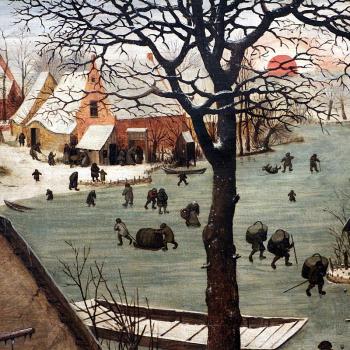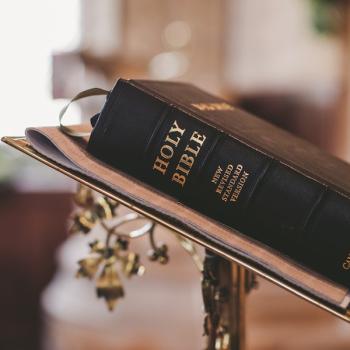However, in a letter to the Patriarch of Antioch written shortly after the document of excommunication, Cerularius does, in fact, go on to attack the entire Western Church in much stronger terms. To begin with, Cerularius says that he has heard that Peter of Antioch considers himself in communion with the Church of Rome, and prays for the Pope during his Eucharistic liturgy. Cerularius, however, takes strong offense at this state of affairs: “I did not think that anyone blundered such an ignorant oversight!” (Caer. Petr. IX). For, according to Cerularius, from the time of the “Fifth Ecumenical ” (IX), because “Pope Vigilius would not attend at that Council” (IX), the Church at Constantinople has not prayed for the Pope during the Liturgy. Indeed, “from then”—almost exactly five hundred years before 1054— “even till now,” Cerularius says, “the Pope has been cut off from the Holy Catholic Church” (IX).
This is an enormous and embarrassing inaccuracy. As a matter of fact, Cerularius is trying to refer to the Sixth, not the Fifth Ecumenical Council, which Pope Vigilius did initially refuse to attend. As Peter of Antioch was later to point out, however, Pope Vigilius did eventually agree to the Council and rescind his excommunication of the Patriarch of Constantinople, returning the two Churches into communion with each other and giving the Council its Ecumenical status; and another Pope had, of course, more recently participated in the Seventh Ecumenical Council, in full communion with Constantinople. Indeed, the Churches had been in communion with each other for quite a long time in 1054, and had prayed for one another in their liturgies throughout this time. According to Cerularius, however, the incident had not at all created a new schism: the two Churches were already in Schism by 1054, and had been for five hundred years.
Unsatisfied, Cerularius proceeds to berate Peter of Antioch for his belief that, besides the use of unleavened bread, the Western Church is completely orthodox. As a matter of a fact, Cerularius says, the Westerners “are wholly lovers of falsehood and bad workers” (XI), “not spitted by one missile alone—the one about the Azymes, the one known clearly to all—but by many and diverse missiles” (XI). Cerularius then proceeds to list the Westerners’ sins and crimes in a dizzying list of customs and theology. Among their detestable practices are “that they eat things strangled, and that they shave, and that they keep the Sabbath, and that they eat blood, and that their monks eat pork fat […] and that on the first Saturday of Lent […] they fast from meat and eat only dairy, and that they eat meat on Wednesday, and on Friday they eat dairy and eggs, and on Saturday they fast the whole day” (XII). Likewise, Cerularius takes issue briefly with the filioque addition to the Creed, as well as with the Western additions to the Sanctus, the practice of clerical celibacy, the Sign of Peace in the Liturgy, the wearing of rings by Bishops, the practice of baptism with one immersion and using blessed salt, and the practice of allowing two brothers to marry two sisters. He accuses some Western Bishops of fighting in battles as secular lords, and Western Christians in general of refusing to venerate relics or honor the great Eastern Saints, and he also claims that “some of them do not venerate the Holy Icons” (XIV). Given these manifold abuses and many others, Cerularius asks, “do they seem to those thinking well to be numbered with the wholly Orthodox? I think not” (XIV). Indeed, he points out that the only people who think that the Westerners are orthodox are the Westerners themselves. Yet, Cerularius says, these are not the Westerners’ greatest sins. Rather, their greatest crime, the one “graver and more insupportable than everything, and showing forth their insanity over and above everything” (XV), is the one exemplified by the Roman legates, “because they say that they arrived here not to be taught or to be argued with, but rather to teach, and to persuade us to hold their dogmas […] with authority and surpassing shamelessness” (XV). The great sin of the West is arrogance.












